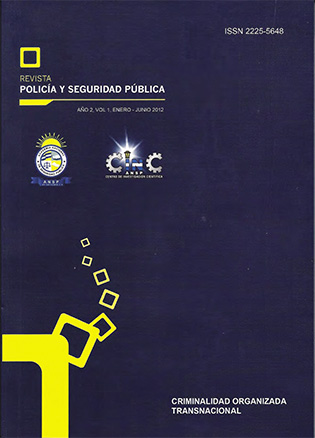Harmonization of Legislation against Organized Crime in Central America
DOI:
https://doi.org/10.5377/rpsp.v1i2.1359Keywords:
transnational organized crime, national law, international treaties, harmonizing legislation, seized assets, fundamental issues, best practices and worst practicesAbstract
With the expansion of organized crime in Central America, the countries in this continental sub-region have enacted a great deal of internal legislation, and have ratified international treaties at the universal, regional and Central American level, particularly after the United Nations Convention against Transnational Organized Crime took effect in 2000.
This abundance of laws is very positive, and is an expression of these Central American States’ intent to fulfill their supranational obligations and provide security for their inhabitants. However, it is also negative in that it has led to dispersion, dislocation, discrepancies and inaccuracies regarding the prevailing legal regulations, because national laws have been developed with different concepts, structures, approaches, scope and definitions.
Despite these conditions that are adverse to legal harmonization, Central America can move forward with matching its legislation against organized crime. Actually, there already exists an extensive common legal framework in this area, expressed in the fact that most international treaties on Organized Crime have come into force at the universal, regional and subregional levels, ratified by all or most countries
Political will is the common denominator that should mediate all efforts of harmonization and alignment of legislation in Central America; it is essential for proposing steps that are based on a common strategy or program.
Downloads
1325
Downloads
Published
How to Cite
Issue
Section
License
Copyright on any research article is transferred in full to Revista Policía y Seguridad Pública upon publication in the journal. The copyright transfer includes the right to reproduce and distribute the article in any form of reproduction (printing, electronic media or any other form).

